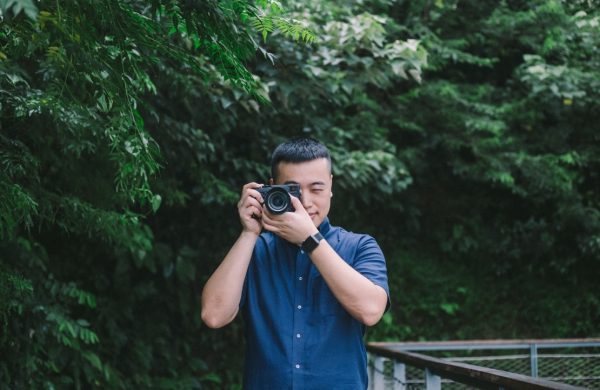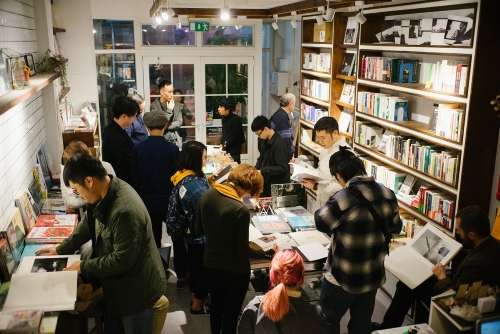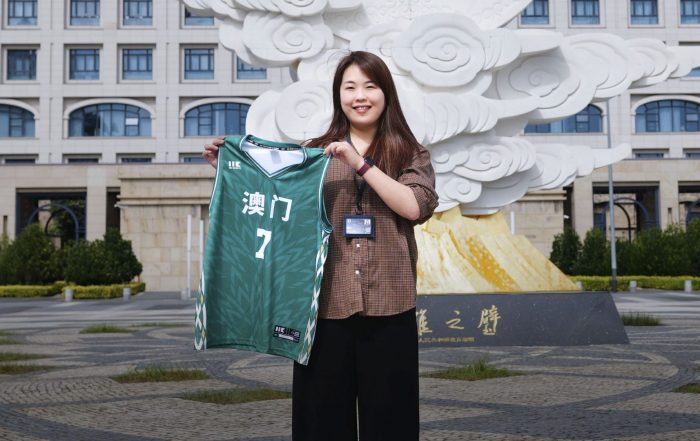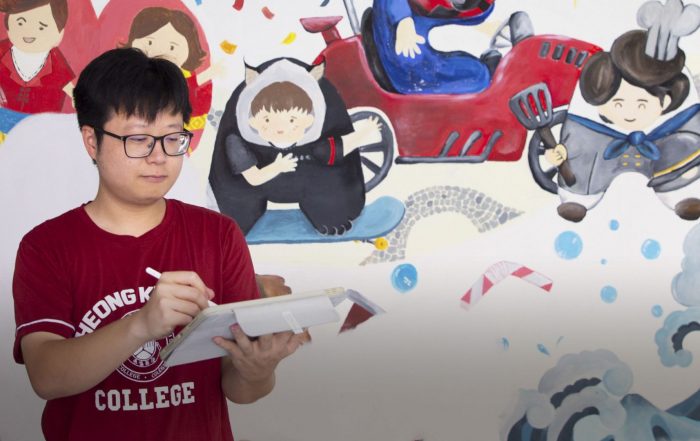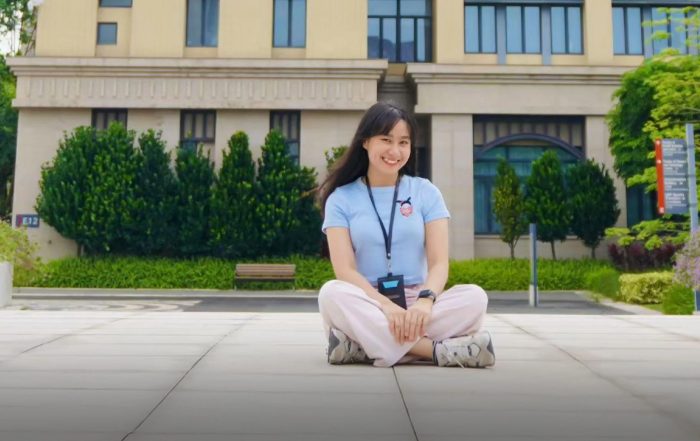Alumnus Tang Kuok Hou (Class of 2015, BSocSc. in Sociology)
Art practitioner
Nominee of the 2018 Macau Annual Art Exhibition & the recipient of the 2017 Orient Foundation Art Award
Capturing every moment of daily life becomes part of the routine for this generation. When pressing the shutter, everyone can turn into a photographer. However, for alumnus Tang Kuok Hou, photography means much more than that. Through observing the society, he uses his lens to discover and display the overlooked feelings and concerns of the city, which evokes the audience’s sympathy and self-reflection. He works more like a social observer rather than simply a photographer.
Do What You Love to Do
Alumnus Tang has been interested in taking photos since he was a child. He was admitted to the Department of Digital Media Design in Taiwan after completing high school. However, he left Taiwan and returned to Macao to pursue a degree in the Department of Sociology at UM when he realized that design was not his desired career. This was how he started his journey both in photography and in sociology. “When I was a freshman, I worked as a part-time artist’s assistant at the Macau Museum of Art. Besides reaching out to artists from different countries, I also learnt some creative techniques and ways of thinking from them. Once I got a chance to participate in the Macau Annual Visual Arts Exhibition organized by the Cultural Affairs Bureau and I was so lucky to be selected as one of the ‘Top Ten Entries.’ Later, I was arranged by the Cultural Affairs Bureau to host an exhibition in Portugal as a new photography talent.” Alumnus Tang felt very surprised to win this award, which inspired him to be more determined to move forward with photography as a career. With interests from design to photography, alumnus Tang seemed to have no set plans for his life. But in fact, he had a very clear direction – to do what he loved to do.
When Niche Turn into Advantage
Being an art practitioner, alumnus Tang understands that he must stand out with unique style. So, he created his special photography style by using his knowledge in sociology and translated what he saw and felt into visualization. He said, “There aren’t many photographers in Macao who focus on landscapes, and using photographs to illustrate sociological concepts is not popular either. Therefore, the local audience do not get in touch with this kind of photography niche. But all these come to my advantage.” Alumnus Tang admitted the programme in sociology at his college helped to develop his sharp observation towards the society and taught him to look at it from different perspectives. Furthermore, to help him to express his work, he has to thank Professor Peter Zabielskis from the Department of Sociology, who gives him guidance and encouragement. “I often discuss questions with my professor, and he would comment on my works and offer very good suggestions. These discussions have inspired me a lot on my works and my life,” he said.
Time-limited Art Creation: the Challenge and the Harvest
Alumnus Tang gets inspiration mainly from the topics of globalization and changes in the city. For example, his latest solo exhibition “Tang Kuok Hou – Fotossíntese | Photosynthesis” is inspired by the colorful lights of the casinos. He hopes to trigger audiences to think about the city landscape and individual behavior behind the colorful lighting at night. His solo exhibition has won the “2017 Oriental Foundation Art Award,” and alumnus Tang had the chance to go Portugal for a month for an artist residency last year. “The most difficult part of the work was to produce something that matched with the main theme in a strange place with limited time. I remembered the location where I wanted to shoot did not allow driving in. Therefore, I just took on all my shooting equipment and a long ladder and walked five to six kilometers from the hotel in the evening. The experience was quite interesting. The exhibition was good success with 12 out of 20 pieces of work kept by the museums and collectors in Portugal; and most of them were collected by the PLMJ Foundation. It was the first time I had so many works being collected by one institution in an exhibition. For me, it was a great encouragement to my artistic career as the PLMJ Foundation is an influential cultural institution in the Portuguese art world. The collected works will be showcased by exhibition or having partnerships with leading art institutions. Therefore, it is also a good recognition to an artist.”
Turning an Ending into a New Beginning
Alumnus Tang returned to the workforce this year after two-years as a full-time artist. Instead of giving up artistic work, he is planning to expand to a more diversified thinking and knowledge-sharing platform. “‘Dialect’ is a photographic group and platform for cultural exchange. Besides sharing the information of photographers and work collections on the website, we are dedicated to explore more possibilities of photography to Macau through organizing various discussions and inviting local and international photographers to exhibit their works. Since the Dialect is a non-profit making association, I decided to return to working life to support the expense on operating and creation,” he said. On the other hand, the Dialect is also committed to expand overseas networking by publishing and sharing the work of local photographers abroad. After 2 years of hard work, the Dialect has developed its network covering Portugal, France, the Netherlands and the United Kingdom.
Alumnus Tang concludes with his own experiences that no matter what job you do, a new creative idea can come up through discussion, observation, and sharing with others. He advises the younger generation of alumni and students not to set limits on themselves. “Do not limit your potential to what major you take, but to develop your own interests. Let’s look at the four partners of the Dialect; we are all from different majors such as sociology, history, software engineering and even physics. But we all engaged in photography-related fields, finally. You need to be more adventures to collaborate with what you learn from your major, as there are always indefinite possibilities in life.”


